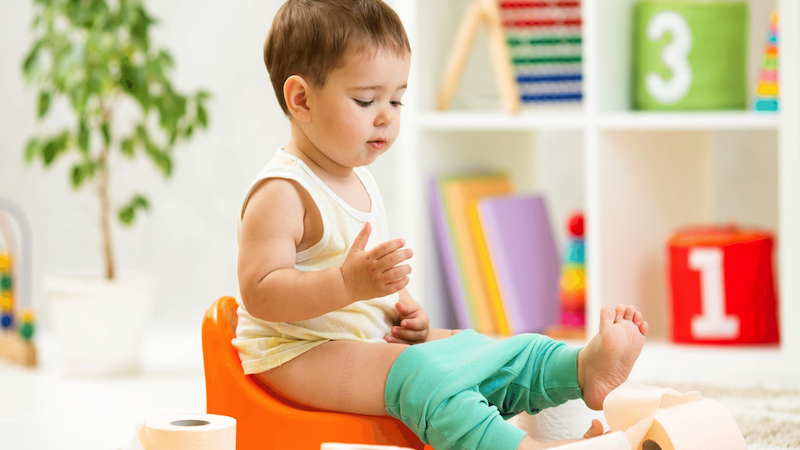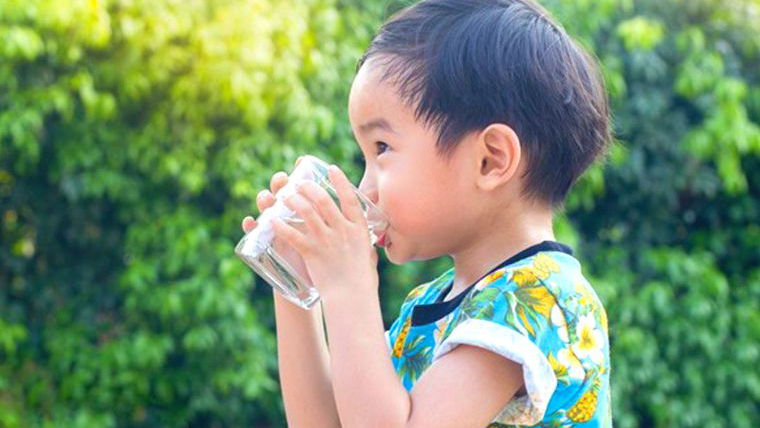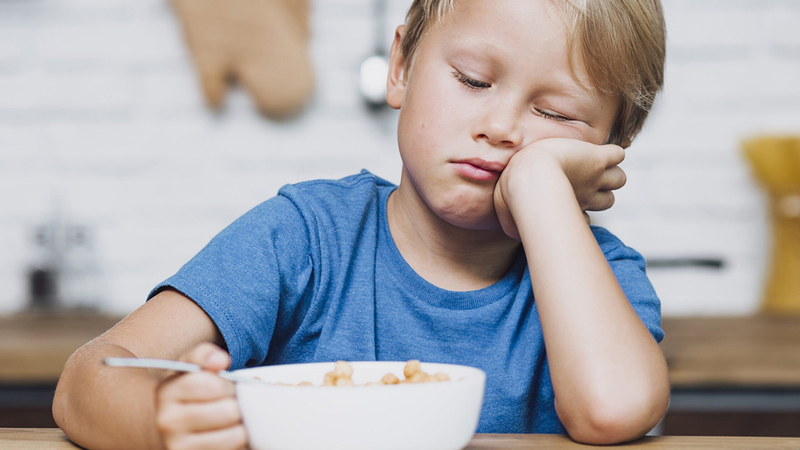Bloating and flatulence are common problems in 4-year-olds because their digestive systems are still developing. These problems are certainly uncomfortable for your baby, so parents need to recognize the symptoms of bloating in 4-year-olds and how to control and treat them effectively.
Although bloating and flatulence in 4-year-olds are usually not dangerous, this condition certainly affects the child’s mood, appetite and sleep. Therefore, understanding the causes and taking timely measures is very important to reduce the child’s discomfort and prevent further complications.
Symptoms of bloating and flatulence in 4-year-olds
Young children often have difficulty clearly expressing to their parents about their discomfort, especially when they have bloating and flatulence. Children often describe bloating and flatulence as “stomach pain” in a general way. However, 4-year-old children with bloating and flatulence will have specific signs for parents to recognize:
- The abdomen is distended and full of water.
- The child complains of abdominal pain even when not eating.
- Burping or farting frequently.
- Mild pain or burning sensation in the abdomen.
- The child often pulls his legs toward the abdomen or feels nauseous.

4 year old child with bloating has many different signs
Causes of Bloating and Gas in 4-Year-Old Children
Understanding the underlying causes of bloating and gas in 4-year-old children is the first step in effective treatment. Common causes include:
Dietary Factors
A diet high in fiber creates gas, which leads to bloating. Foods such as beans, broccoli, cauliflower, and other fiber-rich vegetables are often the culprits.
In addition, dairy products, especially in children with lactose intolerance, fried foods, carbonated drinks, and sugary fruit juices can also cause bloating.
Swallowing Air
Children may accidentally swallow air when eating or drinking, especially when eating too quickly, drinking through a straw, or chewing gum. This excess air contributes to the buildup of gas that causes bloating and gas in 4-year-old children.
Digestive Problems
A number of digestive problems can lead to bloating, including irritable bowel syndrome (IBS), intestinal dysbiosis, constipation, or infections such as Helicobacter pylori (HP). An immature digestive system may also have difficulty breaking down food completely, causing unabsorbed food to ferment in the colon, causing gas and bloating.

Complications of bloating and flatulence in children can cause constipation and intestinal dysbiosis.
Unhealthy eating habits
Many children who move around a lot during meals or watch TV while eating will swallow more air, leading to increased gas in the digestive system. Overeating, which can happen when children lose focus during meals, is another contributing factor.
How to deal with gas in 4-year-olds
The following methods can help mothers control and treat gas and bloating in children effectively:
Adjust the menu
Start by assessing your child’s diet. Gradually introduce vegetables into the diet to determine which ones cause gas and avoid foods that cause gas, such as beans or cruciferous vegetables. Limit fried foods, carbonated drinks, and sugary juices. Encourage your child to drink 100% fruit juice.
Divide meals into smaller portions
Instead of feeding your child three full meals, consider dividing them into smaller portions. This can help your child digest food more easily, reducing the risk of gas. Eating small meals also helps to prevent undigested food from building up in the intestines.
Make sure you drink enough water
Drinking enough water is key to maintaining a healthy digestive system. Make sure your child drinks enough water throughout the day, which helps to prevent constipation and promote bowel movements.

Give your child enough water to promote bowel movements and avoid constipation.
Managing lactose intolerance
Lactose intolerance is a common cause of gas and bloating that can be caused by dairy products such as milk, cheese and yogurt. Symptoms of lactose intolerance usually appear a few hours after consumption. If you suspect your child is lactose intolerant, consult your pediatrician. Most doctors will recommend eliminating milk from your child’s diet and gradually reintroducing it to determine tolerance.
If your child is lactose intolerant, supplement with calcium-rich foods such as salmon, sardines, tofu and eggs to support bone health.
Managing irritable bowel syndrome (IBS)
IBS can be caused by foods high in fructose, processed snacks or chocolate. Symptoms include gas, bloating, diarrhea/constipation, mucus in the stool, loss of appetite and dizziness. Parents should consult a doctor to diagnose and treat their child’s IBS.
Change eating habits
Healthy eating habits can significantly reduce bloating and gas in 4-year-olds. Encourage your child to:
- Sit still during meals.
- Eat slowly and chew thoroughly.
- Avoid watching TV or using mobile devices while eating.
- Do not use straws because they can swallow excess air.
- Increase physical activity to promote digestion.

Children’s eating habits can also cause indigestion.
Additional tips to reduce bloating and gas
In addition to making changes to your child’s diet and lifestyle, the following measures may help reduce your child’s risk of bloating and gas:
Encourage your child to exercise
Gentle exercise, such as walking, can help stimulate the digestive system and release trapped gas.
Warm compresses
Placing a warm towel on your child’s abdomen can soothe discomfort and help your child relax.
Gentle massage
Massaging your child’s abdomen in a clockwise direction can help release gas and reduce bloating.
When to see a doctor?
Although bloating and gas in 4-year-olds is not a dangerous condition, if it persists or becomes severe, it can signal an underlying health problem. You should consult a doctor if:
- Your child’s bloating and gas lasts for more than a day.
- Your child has a fever, loss of appetite.
- Your child has severe abdominal pain or is vomiting.
- There are signs of serious digestive disturbances, such as persistent diarrhea, constipation, or blood in the stool.

When children show signs of fever and loss of appetite, they should be taken to see a specialist.
A pediatrician will examine and assess the situation and then provide appropriate treatment, which may include adjusting the diet, using medication or other medical tests.
In summary, bloating and flatulence in 4-year-old children are often caused by diet, swallowing air or digestive problems. Parents need to understand the causes and symptoms, and proactively handle them by adjusting meals, encouraging healthy eating habits and ensuring that children drink enough water to reduce discomfort and support their digestive health. If symptoms persist or worsen, seeing a specialist is important to prevent complications.





